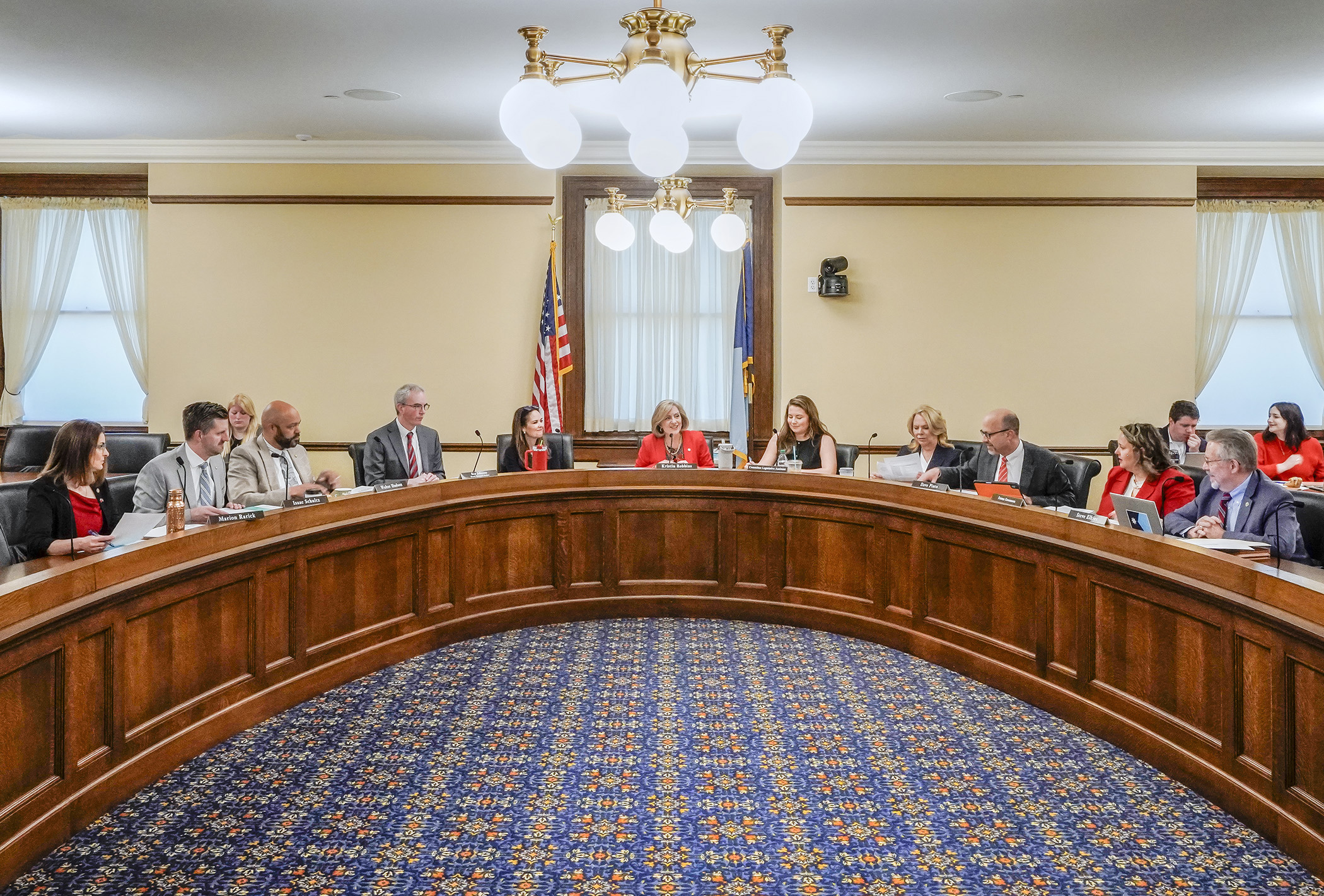Fraud committee eyes stricter rules for monitoring state-funded grants

There’s been plenty of talk this session about how fraud regarding state funds is occurring, preventative and reactive agency response, and potential solutions.
A pair of solution-seeking bills were heard Monday by the House Fraud Prevention and State Agency Oversight Policy Committee on an informational basis. Rep. Kristin Robbins (R-Maple Grove), the committee chair, sponsors both bills.
As amended, HF2891 would require the Department of Administration to create an exam and continuing education requirements for employees seeking to be certified to oversee state grants. And state agencies could only assign grants management responsibilities to employees with the certification.
“We are providing a very detailed definition of what grant management responsibilities are. This varies widely across agencies,” Robbins said. “If people’s job description or responsibilities are not spelled out for grants administration then it becomes a game of hot potato, ‘That wasn’t my job,’ ‘Someone else signed off on this.’ That’s why it’s been hard to have accountability.”
Currently, the Department of Administration does not oversee specific grants, rather it establishes policies and training for state agencies while serving as the central point for grant process issues.
Betsy Hayes, chief procurement officer at the department, said adding a certification element would “bolster” trainings the department already offers. Since July 1, 2024, more than 300 state staff have taken part in grant oversight and accountability training sessions.
The bill would also establish oversight and reporting requirements for grant agencies, including in-person monitoring visits for a grantee receiving at least $50,000. For grantees receiving more than $250,000, the granting agency must conduct at least one unannounced, in-person monitoring visit each fiscal year the grantee receives money.
Other required duties would include documenting certain behaviors, reporting suspected fraud to the agency commissioner and law enforcement, moving to withhold payments, and suspending or debarring grantees for up to three years. The Department of Administration would maintain a list of disciplined or debarred grantees.
Robbins said the preliminary indication is a $7 million biennial cost. “We would have to invest in this, but $7 million to stop hundreds of millions in fraud would be well worth the investment.”
The committee also informationally heard HF3043, a Robbins-sponsored anti-kickback proposal that aims to mirror federal health care-related law that, in part, would make it illegal to solicit or receive something of value in exchange for awarding or facilitating the awarding of a state grant. The bill would also apply to behavioral health and child care assistance programs.
Some pieces of the proposal are also in the human services policy and other bills.
“Kickbacks can be charged under state law and they currently are, it’s just that they have to be done under the theft statute that makes it very clunky for lack of a better word,” said Rep. Dave Pinto (DFL-St. Paul).
Related Articles
Search Session Daily
Advanced Search OptionsPriority Dailies
Stable budget outlook projects $3.7 billion surplus now, no deficit in next biennium
By Lisa Kaczke The projected surplus for Fiscal Years 2026-27 is now higher than it was in the November estimate, and no deficit is projected for the next biennium.
“Minnesota’s budge...
The projected surplus for Fiscal Years 2026-27 is now higher than it was in the November estimate, and no deficit is projected for the next biennium.
“Minnesota’s budge...
Legislative leaders set 2026 committee deadlines
By Lisa Kaczke Legislative leaders on Tuesday officially set the timeline for getting bills through the committee process during the upcoming 2026 session.
Here are the three deadlines for...
Legislative leaders on Tuesday officially set the timeline for getting bills through the committee process during the upcoming 2026 session.
Here are the three deadlines for...